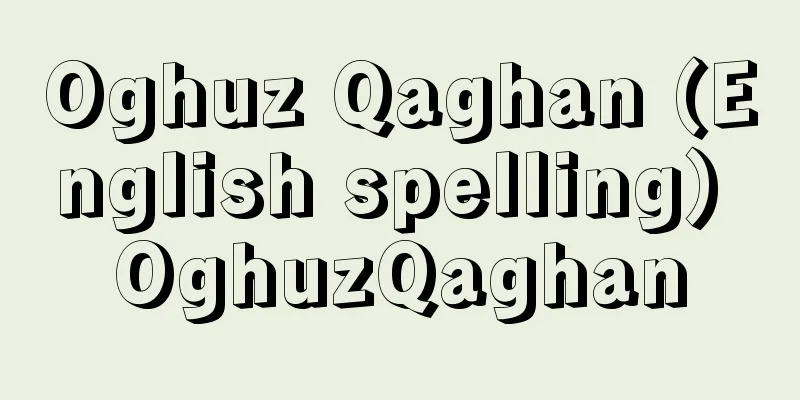Han Yu

|
A Chinese literary scholar and thinker of the Tang Dynasty. His pen name was Tuizhi and his posthumous name was Wen Gong. He was called Changli Sensei because of his place of origin, and Han Libu because of his final official position. He lost his parents at a young age and was raised by his eldest brother Han Hui. He was a Jinshi in 792 (8th year of the Zhenyuan era). After serving as a subordinate official to a local government official, he became a censor in 803 and impeached Li Shi, the chief administrator of the capital, but was instead demoted to the position of governor of Yangshan County (Guangdong Province). He was recalled the following year in 804, and thereafter mainly worked at the Imperial Academy. In 817, during the rebellion of Wu Yuanji, he was promoted to the position of military commander Pei Du's adjutant and promoted to the position of assistant commander in the Ministry of Justice for his contributions in pacifying the rebellion. In 819, he incurred the Emperor's wrath by admonishing him for accepting a Buddhist bone into the palace, and was demoted to the position of governor of Chaozhou (Guangdong Province). However, in the following year of 820, when Emperor Xianzong died, he was recalled to the position of assistant commander in the Ministry of Personnel. He died on December 2, 4th year of the Changqing era. His first literary achievement was the reform of prose style. In opposition to the commonly used style of prose that was centered around couplets, he created a style that was free from the formal constraints of couplets and was still eloquent. He called it "kobun" (classical prose), a revival of the ancient style, and promoted it together with his friend Liu Zongyuan and others. He was particularly skilled at epigraphic biographies, or epigraphs, which tell the biographies of people, and while previous works in this genre were all uniform in the form of a thousand volumes, he wrote concise, unique sentences that were each tailored to the subject. During the Tang dynasty, kobun had not yet become the dominant style, and was only used to the same extent as kobun (traditional prose), but from the Song dynasty onwards, it became the mainstream style of Chinese prose, and his writings are considered models of this style. Secondly, he did not limit his poetry to lyrical themes, but instead tried to express his intellectual interests in refined terms by developing arguments, describing facts in detail, and depicting fantasy in concrete terms, and was known as Han Bai, a representative poet of his time, alongside Bai Juyi, who had a different style of poetry. His poetry is said to have been "made into poetry by prose," and although it is sometimes criticized as being prosaic and difficult to understand, it has had a great influence on the poetry of the Song dynasty, as it expanded the subject matter. In terms of philosophy, he respected Confucian thought and proposed the theory of the Taoist tradition of Yao, Shun, Yu, Tang, Wen, Wu, the Duke of Zhou, Confucius, and Meng Ke, and rejected Buddhism and Taoism. In classical studies, he placed emphasis on the ideological content of the classics, and respected the Doctrine of the Mean and Mencius along with the Analects, making him a pioneer of Song Neo-Confucianism. He co-authored two volumes of the Analects of Confucius with Li Huan. His poetry and prose are collected in 40 volumes of the Collection of Master Changli, 10 volumes of the Outer Collection, and one volume of his remains, and he has commentaries on the Five Hundred Schools compiled by Wei Zhongju of the Song Dynasty and Zhu Xi's (Zhu Xi) Kao I. [Shigeru Shimizu January 19, 2016] “Shige Shimizu’s Selected Chinese Poets 11: Han Yu” (1958, Iwanami Shoten)” ▽ “Norio Harada, “Chinese Poetry Series 11: Han Yu” (1965, Shueisha)” [Reference items] | | |Source: Shogakukan Encyclopedia Nipponica About Encyclopedia Nipponica Information | Legend |
|
中国、唐の文学者、思想家。字(あざな)は退之(たいし)、文公と諡(おくりな)される。自称した出身地によって昌黎(しょうれい)先生とよばれ、最終官によって韓吏部(りぶ)という。幼年にして父母を失い、長兄韓会(かんかい)に養育された。792年(貞元8)の進士。地方の節度使の属官を経て、803年、監察御史となり、京兆尹(けいちょういん)(首都の行政長官)李実(りじつ)を弾劾したが、かえってそのため陽山県(広東(カントン)省)令に左遷された。翌804年召還され、その後、主として国子監に勤務。817年、呉元済(ごげんさい)の反乱のとき、司令官裴度(はいど)の副官として行軍司馬となり、平定の功によって刑部侍郎となる。819年、憲宗皇帝が仏骨を宮廷に迎えたのを諫(いさ)めて、皇帝の怒りに触れ、潮州(ちょうしゅう)(広東省)刺史(しし)に左遷されたが、翌820年憲宗が崩じ、召還されて吏部侍郎にまで至った。長慶4年12月2日卒す。 文学上の功績の第一は、散文の文体改革である。それまで普通行われた対句(ついく)を中心としてつくられる駢文(べんぶん)に反対して、対句など形式の拘束から自由でありながら、しかも達意の文体をつくりあげ、古代文体の復活という意味で「古文」と称し、友人の柳宗元(りゅうそうげん)らとともに推し広めた。とくに、人物の伝記を述べるいわゆる碑誌伝状に優れ、従来のこのジャンルの作品が類型的な千編一律であったのを、それぞれ対象に即して個性的な文章を簡潔に書いた。唐代では古文はまだ支配的文体にまで至らず、駢文と並び行われる程度であったが、宋(そう)代以後、中国の散文文体の主流となり、彼の文章はその模範とされる。第二に、詩において叙情的テーマに限定せず、議論を展開したり、事実を詳細に記述したり、幻想を具象的に描写するなど、知的な興味を精練した表現で表すことを試み、作風を異にする白居易(はくきょい)と並んで、韓白と称され、当時の代表的詩人であった。その詩は、「文を以(もっ)て詩と為(な)した」といわれ、ときに散文的で難解との批判もあるが、題材の拡張とともに、宋代の詩に与えた影響は大きい。 思想の方面では、儒家思想を尊重して、堯(ぎょう)・舜(しゅん)・禹(う)・湯(とう)・文・武・周公・孔子・孟軻(もうか)という道統の説を提出し、仏教・道教を排撃した。古典研究において、経書の思想内容に重点を置き、『論語』と並んで『中庸(ちゅうよう)』や『孟子(もうし)』を尊重するなど、宋の性理学の先駆者とされ、李翺(りこう)との共著『論語筆解』2巻が存する。詩文は、『昌黎先生集』40巻、外集10巻、遺文1巻に収められ、宋の魏仲挙(ぎちゅうきょ)編五百家注、朱熹(しゅき)(朱子)『考異』などの注解がある。 [清水 茂 2016年1月19日] 『清水茂注『中国詩人選集11 韓愈』(1958・岩波書店)』▽『原田憲雄著『漢詩大系11 韓愈』(1965・集英社)』 [参照項目] | | |出典 小学館 日本大百科全書(ニッポニカ)日本大百科全書(ニッポニカ)について 情報 | 凡例 |
<<: Government land - Kanyuuchi
Recommend
Marceau, Félicien
Born: September 16, 1913, Cortanvert [Died] March ...
Compress - Anpo
A therapy that aims to improve illness or relieve...
Copperplate engraving
A general term for prints that use copper plates ...
No imports, no imports - Fuyufunyū
A privilege that excluded the intervention of stat...
Yellow-headed Wagtail - Yellow-headed Wagtail
...However, in recent years, the White Wagtail an...
Shin Don (English spelling)
?-1371 A monk and politician from the late Goryeo ...
Certificate of refusal - protest
A notarized document is a formal document that cer...
beth
...The land between the rivers of a water system ...
Ryu Soro
Year of death: 2/2/1792 (2/23/1792) Year of birth:...
Conjugate Arc - Kyoyakuko
Two arcs separated by two points on the circumfere...
Valentino - Rudolph Valentino
American film actor. Born May 6th in Castellaneto...
Hanuman langur - Hanuman langur (English spelling)
It is an animal of the Cercopithecidae family of ...
Equality State
…Wyoming's development began after the comple...
Dressmaking - Yosai
An abbreviation for Western sewing. In other word...
Emotional disorder
It refers to all adjustment disorders in developin...



![Shikaoi [town] - Shikaoi](/upload/images/67cbbbb45deb8.webp)





